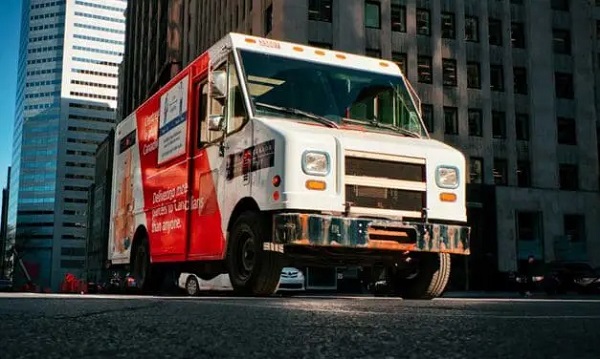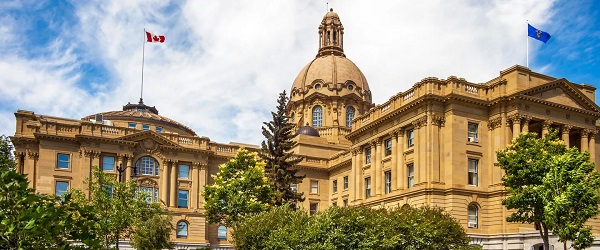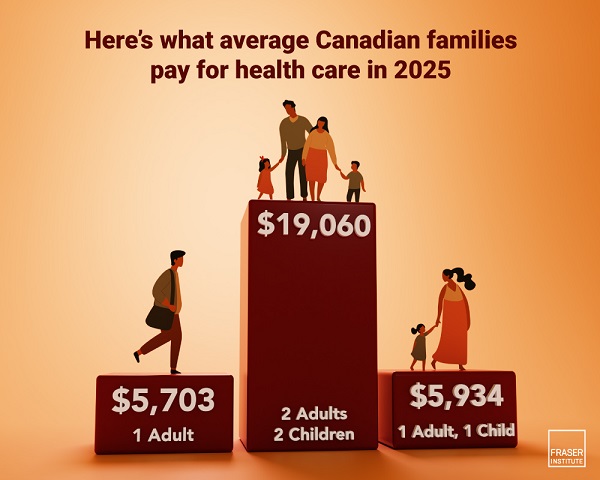National
Disgruntled Liberal MPs reportedly give Trudeau until October 28 to step down

From LifeSiteNews
Liberal MPs reportedly gave Trudeau a letter this week demanding he step down as party leader or face undisclosed consequences from within his own caucus.
Discontented Liberals have reportedly given Prime Minister Justin Trudeau until October 28 to step down as Liberal Party leader before they take action to force the issue.
During a widely anticipated October 23 Liberal caucus meeting, Liberal MPs gave Trudeau a letter demanding his resignation by next week, according to information shared by Liberal MPs with the National Post.
“The letter—which two MPs confirmed did not include the signatures of those who signed— recognized Trudeau’s accomplishments in office, but said MPs felt compelled to share feedback from constituents and asked that he respond positively to the call for him to step down,” the report stated.
During the three-and-a-half-hour caucus meeting, around 60 MPs addressed their fellow Liberals, about half of whom are said to have called for Trudeau to step down.
According to the National Post, the Liberal letter gives Trudeau until October 28 to resign but does not specific what the consequences will be if the prime minister declines to do so.
The October deadline comes after 20 Liberals had signed a letter to call on Trudeau to be removed as leader of the Liberal Party following two disastrous by-election results in “safe” ridings in Toronto and Montreal.
While none of the Liberals would publicly disclose what was said at the meeting, New Brunswick MP Wayne Long, who recently called for Trudeau’s resignation, hinted that the discussion included the possibility of Trudeau stepping down.
“In my nine years, I have not seen a more open, honest, frank and direct meeting between members of Parliament and the prime minister. I’ve not seen anything like that,” he said.
“My hope is that the prime minister has cause for reflection on what MPs said,” Long continued. “What he does with that message and how he processes that message and how he moves forward with that message is really up to him.”
However, Trudeau’s comments on the meeting seem to tell a different story. Following the party caucus, Trudeau told reporters that the Liberal party is “strong and united” before refusing to take any further questions.
In addition to the October deadline, others have begun to publicly decry Trudeau’s leadership and call for his resignation. Earlier this week, Liberal MP Sean Casey of Charlottetown, Prince Edward Island, told CBC News that Trudeau’s time as leader has ended, making him the second MP in a week to make such a declaration.
“My job has always been to project the voice of the people I represent in Ottawa, to be Charlottetown’s representative in Ottawa, and not the reverse,” he said. “And the message that I’ve been getting loud and clear and more and more strongly as time goes by is that it’s time for him to go. And I agree.”
Casey’s statement echoes Montreal Liberal MP Anthony Housefather who told CTV News that it is time for the Liberal Party to discuss who will lead them into the 2025 election.
“I support whoever is leader in my party at all times,” he said. “But that doesn’t mean there shouldn’t be a robust caucus discussion about who the best person to lead us in the next election is, and that discussion should happen in caucus. It shouldn’t happen in the media.”
Calls for Trudeau’s resignation come on top of the numerous Liberal MPs, including former cabinet ministers, who have vacated their seats or who have announced that they will not be running for re-election.
In addition to calls from the political class for Trudeau’s resignation, or at the very least their distancing themselves from his leadership, Canadian citizens have also had enough of the prime minister’s rule over the country.
Polls continue to uncover the upset of Canadians toward the current government, whether it be the 70 percent who believe the country is “broke,” or the majority of citizens who report being worse off financially since Trudeau took office.
Additional polls show that the scandal-plagued government has sent the Liberals into a nosedive with no end in sight, with a September poll showing that the Conservatives under Pierre Poilievre would win a landslide majority government were an election held today.
Business
Conservative MPs denounce Liberal plan to strip charitable status of pro-life, Christian groups
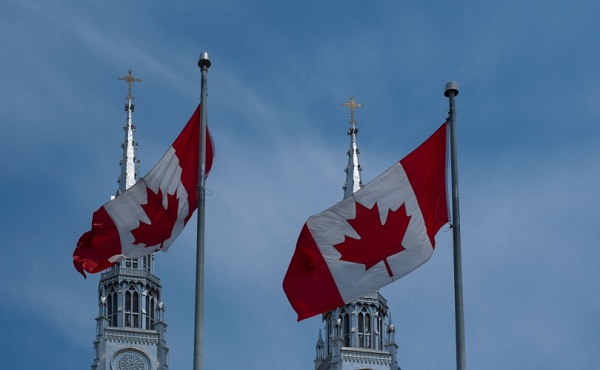
From LifeSiteNews
Conservative MPs presented a petition in Parliament defending pro-life charities and religious organizations against a Liberal proposal to strip their charitable tax status.
Conservative MPs presented a petition calling for the rejection of the Liberals’ plan to strip pro-life charities and places of worship of their charitable status.
During the September 16 session, Conservative Members of Parliament (MPs) Andrew Lawton, Jacob Mantle, and Garnett Genuis defended pro-life charities and places of worship against Liberal recommendations to remove the institutions’ charitable status for tax purposes.
“I have received from houses of worship across this country so much concern, reflected in this petition, that these recommendations are fundamentally anti-free speech and anti-religious freedom,” Lawton told Parliament. “The petitioners, and I on their behalf, advocate for the complete protection of charitable status regardless of these ideological litmus tests.”
Similarly, Mantle, a newly elected MP, added that Canadians “lament that some members opposite are so blinded by their animus towards charitable organizations that they would seek to undermine the good works that these groups do for the most vulnerable Canadians.”
Religious charities provide care and compassion to the most vulnerable in our society, but some members of the Liberal and New Democratic parties are so blinded by their animus towards religion and faith that they are actively seeking to revoke the charitable status of ALL… pic.twitter.com/O12rkw3pJ0
— Jacob Mantle (@jacobmantle) September 16, 2025
Finally, Genuis, who officially presented the petition signed by hundreds of Canadians, stressed the importance work accomplished by religious and pro-life organizations.
“(R)eligious charities in Canada provide vital services for society, including food banks, care for seniors, newcomer support, youth programs and mental health outreach, all of which is rooted in their faith tradition, and that singling out or excluding faith charities from the charitable sector based on religious belief undermines the diversity and pluralism foundational to Canadian society,” he explained.
As LifeSiteNews previously reported, before last Christmas, a proposal by the all-party Finance Committee suggested legislation that could strip pro-life pregnancy centers and religious groups of their charitable status.
The legislation would amend the Income Tax Act and Income Tax. Section 429 of the proposed legislation recommends the government “no longer provide charitable status to anti-abortion organizations.”
The bill, according to the finance department, would require “registered charities that provide services, advice, or information in respect of the prevention, preservation, or termination of pregnancy (i.e., destroying the unborn)” to disclose that they “do not provide specific services, including abortions or birth control.”
Similarly, Recommendation 430 aims to “amend the Income Tax Act to provide a definition of a charity which would remove the privileged status of ‘advancement of religion’ as a charitable purpose.”
Many Canadians have warned that the proposed legislation would wipe out thousands of Christian churches and charities across Canada.
As LifeSiteNews reported in March, the Canadian Conference of Catholic Bishops (CCCB) appealed to the Liberal government to rethink the plan to strip pro-life and religious groups of their tax charity status, stressing the vital work done by those organizations.
Addictions
No, Addicts Shouldn’t Make Drug Policy

By Adam Zivo
Canada’s policy of deferring to the “leadership” of drug users has proved predictably disastrous. The United States should take heed.
[This article was originally published in City Journal, a public policy magazine and website published by the Manhattan Institute for Policy Research]
Progressive “harm reduction” advocates have insisted for decades that active users should take a central role in crafting drug policy. While this belief is profoundly reckless—akin to letting drunk drivers set traffic laws—it is now entrenched in many left-leaning jurisdictions. The harms and absurdities of the position cannot be understated.
While the harm-reduction movement is best known for championing public-health interventions that supposedly minimize the negative effects of drug use, it also has a “social justice” component. In this context, harm reduction tries to redefine addicts as a persecuted minority and illicit drug use as a human right.
This campaign traces its roots to the 1980s and early 1990s, when “queer” activists, desperate to reduce the spread of HIV, began operating underground needle exchanges to curb infections among drug users. These exchanges and similar efforts allowed some more extreme LGBTQ groups to form close bonds with addicts and drug-reform advocates. Together, they normalized the concept of harm reduction, such that, within a few years, needle exchanges would become officially sanctioned public-health interventions.
The alliance between these more radical gay rights advocates and harm-reduction proponents proved enduring. Drug addiction remained linked to HIV, and both groups shared a deep hostility to the police, capitalism, and society’s “moralizing” forces.
In the 1990s, harm-reduction proponents imitated the LGBTQ community’s advocacy tactics. They realized that addicts would have greater political capital if they were considered a persecuted minority group, which could legitimize their demands for extensive accommodations and legal protections under human rights laws. Harm reductionists thus argued that addiction was a kind of disability, and that, like the disabled, active users were victims of social exclusion who should be given a leading role in crafting drug policy.
These arguments were not entirely specious. Addiction can reasonably be considered a mental and physical disability because illicit drugs hijack users’ brains and bodies. But being disabled doesn’t necessarily mean that one is part of a persecuted group, much less that one should be given control over public policy.
More fundamentally, advocates were wrong to argue that the stigma associated with drug addiction was senseless persecution. In fact, it was a reasonable response to anti-social behavior. Drug addiction severely impairs a person’s judgement, often making him a threat to himself and others. Someone who is constantly high and must rob others to fuel his habit is a self-evident danger to society.
Despite these obvious pitfalls, portraying drug addicts as a persecuted minority group became increasingly popular in the 2000s, thanks to several North American AIDS organizations that pivoted to addiction work after the HIV epidemic subsided.
In 2005, the Canadian HIV/AIDS Legal Network published a report titled “Nothing about us without us.” (The nonprofit joined other groups in publishing an international version in 2008.) The 2005 report included a “manifesto” written by Canadian drug users, who complained that they were “among the most vilified and demonized groups in society” and demanded that policymakers respect their “expertise and professionalism in addressing drug use.”
The international report argued that addiction qualified as a disability under international human rights treaties, and called on governments to “enact anti-discrimination or protective laws to reduce human rights violations based on dependence to drugs.” It further advised that drug users be heavily involved in addiction-related policy and decision-making bodies; that addict-led organizations be established and amply funded; and that “community-based organizations . . . increase involvement of people who use drugs at all levels of the organization.”
While the international report suggested that addicts could serve as effective policymakers, it also presented them as incapable of basic professionalism. In a list of “do’s and don’ts,” the authors counseled potential employers to pay addicts in cash and not to pass judgment if the money were spent on drugs. They also encouraged policymakers to hold meetings “in a low-key setting or in a setting where users already hang out,” and to avoid scheduling meetings at “9 a.m., or on welfare cheque issue day.” In cases where addicts must travel for policy-related work, the report recommended policymakers provide “access to sterile injecting equipment” and “advice from a local person who uses drugs.”
The international report further asserted that if an organization’s employees—even those who are former drug users—were bothered by the presence of addicts, then management should refer those employees to counselling at the organization’s expense. “Under no circumstances should [drug addicts] be reprimanded, singled out or made to feel responsible in any way for the triggering responses of others,” stressed the authors.
Reflecting the document’s general hostility to recovery, the international report emphasized that former drug addicts “can never replace involvement of active users” in public policy work, because people in recovery “may be somewhat disconnected from the community they seek to represent, may have other priorities than active users, may sometimes even have different and conflicting agenda, and may find it difficult to be around people who currently use drugs.”
Subscribe for free to get BTN’s latest news and analysis – or donate to our investigative journalism fund.
The messaging in these reports proved highly influential throughout the 2000s and 2010s. In Canada, federal and provincial human rights legislation expanded to protect active addicts on the basis of disability. Reformers in the United States mirrored Canadian activists’ appeals to addicts’ “lived experience,” albeit with less success. For now, American anti-discrimination protections only extend to people who have a history of addiction but who are not actively using drugs.
The harm reduction movement reached its zenith in the early 2020s, after the Covid-19 pandemic swept the world and instigated a global spike in addiction. During this period, North American drug-reform activists again promoted the importance of treating addicts like public-health experts.
Canada was at the forefront of this push. For example, the Canadian Association of People Who Use Drugs released its “Hear Us, See Us, Respect Us” report in 2021, which recommended that organizations “deliberately choose to normalize the culture of drug use” and pay addicts $25-50 per hour. The authors stressed that employers should pay addicts “under the table” in cash to avoid jeopardizing access to government benefits.
These ideas had a profound impact on Canadian drug policy. Throughout the country, public health officials pushed for radical pro-drug experiments, including giving away free heroin-strength opioids without supervision, simply because addicts told researchers that doing so would be helpful. In 2024, British Columbia’s top doctor even called for the legalization of all illicit drugs (“non-medical safer supply”) primarily on the basis of addict testimonials, with almost no other supporting evidence.
For Canadian policymakers, deferring to the “lived experiences” and “leadership” of drug users meant giving addicts almost everything they asked for. The results were predictably disastrous: crime, public disorder, overdoses, and program fraud skyrocketed. Things have been less dire in the United States, where the harm reduction movement is much weaker. But Americans should be vigilant and ensure that this ideology does not flower in their own backyard.
Subscribe to Break The Needle.
Our content is always free – but if you want to help us commission more high-quality journalism,
consider getting a voluntary paid subscription.
-

 National2 days ago
National2 days agoChrystia Freeland resigns from Mark Carney’s cabinet, asked to become Ukraine envoy
-

 International2 days ago
International2 days agoFrance records more deaths than births for the first time in 80 years
-

 Business2 days ago
Business2 days agoOttawa’s so-called ‘Clean Fuel Standards’ cause more harm than good
-

 Business2 days ago
Business2 days agoThe Truth Is Buried Under Sechelt’s Unproven Graves
-

 Energy1 day ago
Energy1 day agoA Breathtaking About-Face From The IEA On Oil Investments
-

 Alberta2 days ago
Alberta2 days agoParents group blasts Alberta government for weakening sexually explicit school book ban
-

 Health1 day ago
Health1 day agoCanadians diagnosed with cancer in ER struggle to receive treatment as Liberals keep pushing MAiD
-
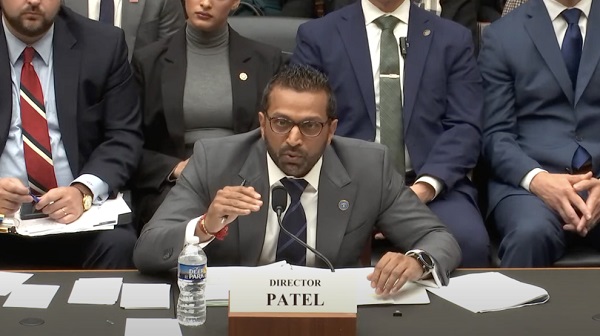
 International1 day ago
International1 day agoFBI Director Patel challenged on handling of the Epstein files during oversight hearing



